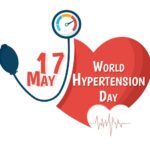New Delhi, September 30, 2017 : More than 3 lakh members from across the country have been asked to sit on a dawn-to-dusk fast, from 6 am to 6 pm, on 2nd October.
The day has also been commemorated as the ‘International Day of Non Violence’ by the United Nations in memory of Mahatma Gandhi, who was born on this day.
This fast takes forward the “Dilli Chalo” movement of IMA held on the 6th of June and marks our continuing Satyagraha for a solution to the problems faced by the medical profession and further strengthen our demands through this peaceful protest for a strong Central Legislation against the continuing violence against doctors and clinical establishments, amendments in the CEA and PCPNDT Act, pay parity and uniform service conditions all across India, capping of the compensation amount awarded and not allowing non-MBBS and non-BDS doctors to prescribe medicines under the modern system of medicine
All State/UT branches of IMA will hold General body meetings today; resolutions will be passed and a letter will be sent to the Hon’ble Prime Minister requesting his intervention in the implementation of the demands of the medical profession.
On the occasion, Padma Shri Awardee Dr KK Aggarwal, National President Indian Medical Association (IMA) & President Heart Care Foundation of India (HCFI) and Dr RN Tandon Honorary Secretary General IMA in a joint statement, said, “We demand immediate implementation of the recommendations of the Inter-Ministerial Committee and other demands. The Government had constituted the Inter-Ministerial Committee on 13th November, 2015, with IMA as a party, to examine the issues raised by IMA. As an outcome of persistent efforts of IMA for the past two years, the Inter-Ministerial Committee considered our demands. The Health ministry also recommended and forwarded the recommendations of the committee on all five major issues to the concerned Ministries for necessary action. But they are yet to be implemented.”
Dr R V Asoka Chairman Action Committee said “The Clinical Establishments Act is not state-friendly. CEA makes it mandatory for private clinical establishments to stabilize trauma victims. Similarly, in case of natural disasters, sexual abuse and other man-made disasters like fire, cracker explosions, spurious liquor tragedy etc., the private health sector is forced to give free treatment. Single doctor establishments should be exempted from the purview of the CEA. The Act is being implemented without taking into consideration the ground realities, which is pushing to medium-sized healthcare establishments to extinction.”
Dr Ravi Wankhedkar Incoming National President IMA said “Clerical errors in the maintenance of registers and minor noncompliance should not attract criminal provisions of the PCPNDT Act. Urgent amendments are needed in the PCPNDT Act to ensure that strict penalties are imposed only on actual acts of sex determination or female foeticide. It is the ultrasound machines that should be registered and not doctors doing pelvic ultrasound.”
Following are the demands of the medical fraternity.
- Stop criminal prosecution of medical negligence and clerical errors
- Stringent central act against violence on doctors
- Capping the compensation in Consumer Protection Act (CPA) on doctors
- Professional autonomy in treatment and prescriptions
- Amendments in PC PNDT, Central CEA, West Bengal CEA Acts
- No unscientific mixing of systems of medicine
- Empower MBBS graduates
- One drug – One company – One price
- Implement inter-ministerial committee recommendations in six weeks
- Single window accountability
- Single window registration of doctors and medical establishments
- No to National Medical Commission (NMC): Amend IMC act to maintain professional autonomy
- Uniform final MBBS exam instead of ‘NEXT’
- Uniform service conditions for service doctors & faculty
- Same work – Same pay – Pay parity – No to adhocism
- Fair conduction of NEET exam
- IMA member in every government health committee
- Central anti-quackery law
- Reimbursement of emergency services provided by private sector
- 25000 family medicine PG seats
- Aided hospitals and retainership in general practice
- Health budget of 5% of GDP for universal health coverage







